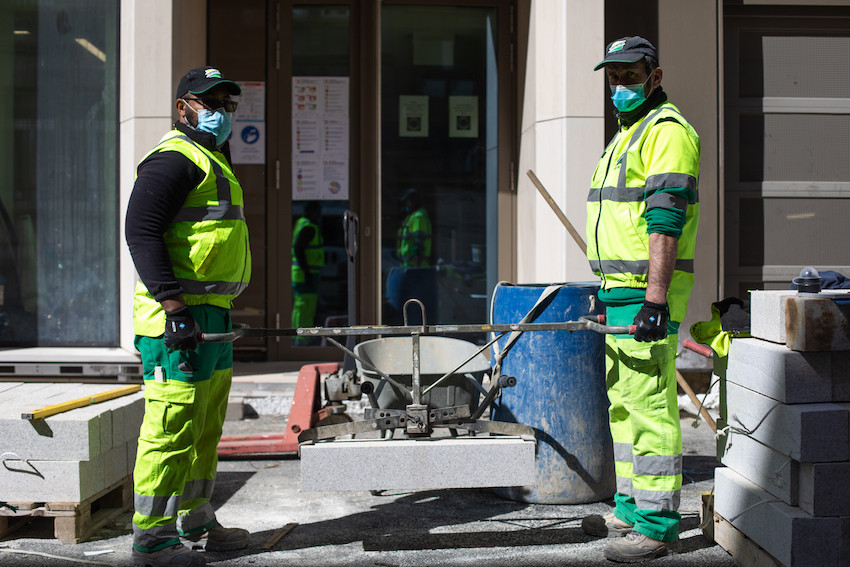Building industry bosses had lobbied for the annual shutdown to be suspended or modified to make up for the time lost while the sector was frozen, from 18 March to 20 April, due to coronavirus restrictions. But after four rounds of talks, negotiations broke down on Thursday.
Employer groups, in a statement released on 14 May, pointed to the huge financial hit their firms have taken:
“The average loss during this period amounts to 60%. State aid, such as the short-time working scheme for employees, on average only covered 50% of company costs during this period given the level of investment and relatively large use of capital”.
The Federation of Craftsmen (Fédération des Artisans), Federation of Technical Engineering (Fédération du Génie Technique), Federation of Luxembourg Construction and Civil Engineering Companies (Fédération des Entreprises Luxembourgeoises de Construction et de Génie Civil) and Association of Building and Public Works Contractors (Groupement des Entrepreneurs du Bâtiment et des Travaux Publics) said in their joint statement:
“The unions only wanted to talk about vacation, when the future of many companies is at stake and the sector, including its employees, faces enormous challenges.”
The LCGB trade union said on 14 May that the shutdown has not a holiday:
“Employees did not spend the 4 weeks off on vacation, but found themselves isolated in confinement and accompanied by financial worries related to partial unemployment.”
The OGBL trade union said on 14 May:
“From the start of these discussions, the OGBL made concrete and pragmatic proposals to the employers’ camp.
“In order to protect the right of each employee to paid leave, the OGBL nonetheless set down, as an essential condition for a possible flexibilisation of the collective summer leave, obtaining a guarantee from employers that each employee would maintain a real right to holidays during the summer period, that the leave was not at the discretion of the employer and that each employee who had already booked their vacation can go on holiday during the collective leave period as previously planned.”
Luxembourg’s construction sector employs around 50,000 people, about 10% of the country’s workforce, per Statec data. Construction contributes around 5% to the economy.
The sector’s three week collective leave will run from 31 July to 23 August 2020.
